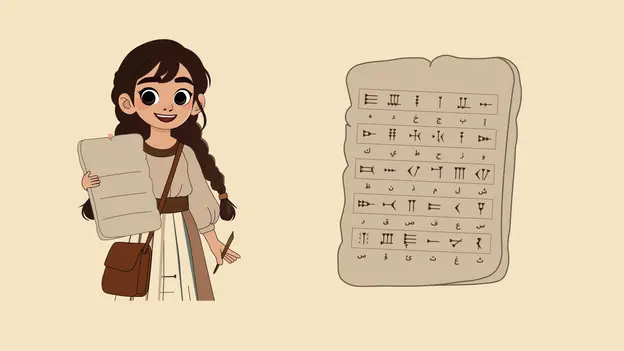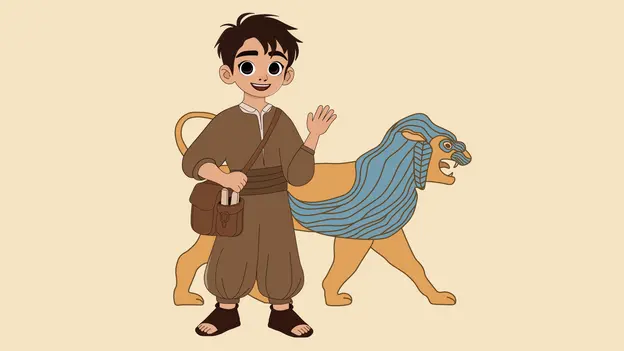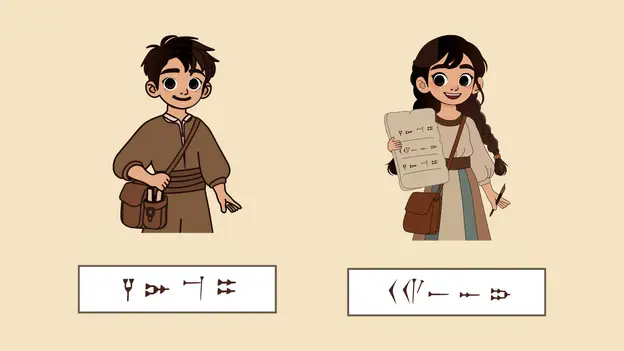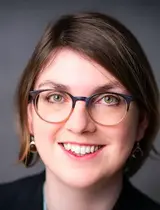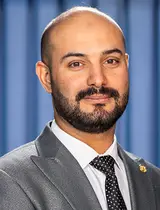Tandem Project
Unlocking History of the Mesopotamia Through Script
This project connects children in Kurdistan Region of Iraq with their rich cultural heritage. To engage young learners aged 6-12 with the diverse historical writing practices of Mesopotamia, the AGYA members Dr. Abdulsatar Sultan and Prof. Dr. Barbara Henning developed together with Arab and German experts specialized educational materials designed for Iraqi children. The team has created a self-guided tour available in Arabic, Kurdish, and English that leads young explorers through Erbil's historical center, including visits to the Erbil First School Museum, the Erbil Civilizations Museum, and the Syriac Heritage Museum in Ankawa.
Bringing Ancient Writing to Iraqi Children
The collaboration merges cutting-edge academic research on writing cultures with creative approaches to science communication and knowledge transfer. Arab and German researchers have joined forces to examine how writing practices shape identity, community building, and cultural transmission.
The project's unique strength lies in its ability to transform complex historical concepts into engaging experiences for children.
Barbara Henning
By focusing on the tangible practice of writing—something children encounter daily— the researchers have created accessible entry points to the multilayered history of Northern Iraq, including Kurdistan Region. Young participants can explore everything from ancient Sumerian cuneiform to modern Arabic script variants, experiencing firsthand the evolution of communication across millennia.
As an Iraqi scholar, I see this project as a bridge between our ancient past and the future generation. By blending museum pedagogy with gamification, we make history come alive for children, allowing them to connect with their heritage in an exciting and meaningful way.
Abdelsatar Sultan
Preservation of cultural heritage in a region marked by cultural diversity
The Arab and German scholars have developed a child-friendly mascot that guides young visitors through interactive experiences where they can copy, decipher, and experiment with various scripts. Digital resources complement physical materials, offering multimedia content and interactive quizzes that make learning about ancient writing systems both educational and entertaining.
The project extends beyond Erbil’s city center through a traveling exhibit in collaboration with Iraq’s first green mobile library. This initiative brings educational resources to children across Northern Iraq, including those in remote areas with limited access to museums. By integrating sustainability with cultural outreach, the project highlights the impact of Arab-German academic cooperation in supporting civil society, particularly in post-conflict regions where preserving cultural heritage is crucial for rebuilding communities.
In a region marked by linguistic and cultural diversity, this project celebrates the polyphony of languages and scripts that have shaped Northern Iraq throughout history. By engaging children with Sumerian, Akkadian, Aramaic, Assyrian, Armenian, Arabic and Kurdish writing systems, the project fosters appreciation for cultural diversity and promotes a more inclusive understanding of shared heritage.
- Cooperation Partners
- Erbil First School Museum, Erbil, Iraq
- Erbil Civilizations Museum, Erbil, Iraq
- Syriac Heritage Museum Ankawa, Erbil, Iraq
- Disciplines involved
- Ancient, Medieval and Ottoman History, Museum Studies, Archaeology, Education Studies, Linguistics/Philology
- Venue
- Catholic University (CUE), Erbil, Iraq
- Vrije Universiteit (VU), Amsterdam, Netherlands
- Project Title
- For Script Hunters and Time Travelers: Making Cultures of Writing Accessible to Young Target Audiences in Erbil
- Year
- 2024
- Funding Scheme
- Tandem Project
- Working Group
- Arab and German Education
- Countries Involved
- Iraq, Germany, Netherlands
